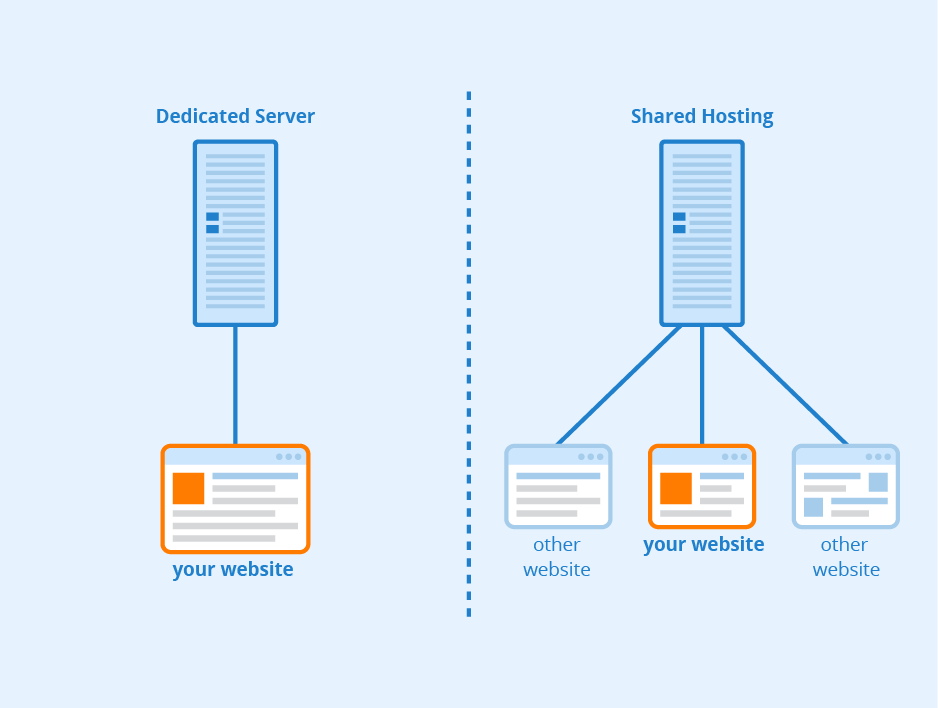What Are The Basic System Requirements For a Dedicated Server?

Dedicated Server Hosting is one of the popular hosting solutions among people who are looking for a reliable domain and hosting solution to host their resource-intensive websites and applications.
But to make it use properly, you must ensure that you will invest in Dedicated Hosting that fulfils at least the basic requirements.
For instance, you have to buy a Dedicated Server in Singapore; thus, you have to first look at the basic Dedicated Hosting requirements such as CPU, storage, RAM, bandwidth, and more.
So what are those? To know this, keep reading this article.
What Are Some Basic Dedicated Server Requirements?
- CPU Processor
- Look for a reputable brand CPU (Intel or AMD) with the latest generation and appropriate cores for the workload.
- Suitable clock speed as the higher the speed, the higher the performance.
- Adequate L3 cache for handling the data-intensive tasks.
- Consider hyper-threading or SMT to perform multiple tasks
- Virtualisation support (VT-x or AMD-V)
- Ensure the compatibility of the CPU with the motherboard
- Consider TDP (Thermal Design Power) for the cooling of a Dedicated Server.
- Opt for server-class CPUs for round-the-clock operation
- ECC support for data integrity.
- Storage Space
- Choose HDD (Hard Disk Drive) or SSD (Solid StateDrive) based on performance requirements.
- Determine capacity (GB or TB) based on data volume.
- Consider RAID (Redundant Array of Inexpensive/Independent Disks.) for data protection.
- Balance read/write speeds.
- Implement a data backup strategy.
- Evaluate hot-swap support for critical applications.
- Plan for storage expansion.
- Check data centre policies if colocating.
- RAM Memory
- Consider server purposes such as web hosting, gaming, etc.
- Consider workload; heavier workloads require more RAM
- Allocate RAM based on multitasking needs.
- Plan for scalability.
- ECC RAM for data integrity in critical applications.
- Network Interface
- Adequate network speed (e.g., 1 Gbps or 10 Gbps)
- Redundancy for failover and load balancing
- Compatible port type (e.g., RJ45 or SFP+)
- IPv4/IPv6 support
- Network security features like VLAN Support, traffic filters, and more.
- OS driver support
- Remote management interfaces (e.g., IPMI) if needed.
- Transmission Power
- Confirm network type (wired or wireless).
- Ensure adequate cable length and signal strength.
- Bandwidth
- Estimate data traffic needs (Mbps or Gbps).
- Account for peak usage and traffic spikes.
- Optimise for content delivery.
- Check data centre upstream connectivity.
- Use QoS for traffic prioritisation.
- Operating System
- Ensure the OS is compatible with your Dedicated Server hardware and the hosted applications.
- Choose a stable and supported OS version
- Proper licensing
- Security updates
- Tailored for server roles
- Resource-efficient
- Virtualisation support, if needed
- Management tools availability.
- Security System
- Firewall
- Intrusion Detection System (IDS) and Intrusion Prevention System (IPS)
- Secure authentication
- Regular updates
- Antivirus software
- Data encryption
- Access control
- Logging and monitoring
- Data backups
- Physical security
- DDoS protection
- Security audits
- Incident response plan
Wrapping Up
A Dedicated Server is not something you will buy regularly and does not come in less price; instead, you have to invest a high amount to buy this.
This is why you must look for a reliable and trustworthy hosting provider and the basic Dedicated Server Hosting requirements. It will help you to leverage the benefits of the investment the most.
So, determining your hosting needs and carefully researching the basic Dedicated Server requirements will ensure the proper business operation and growth of your organisation in this online world.
